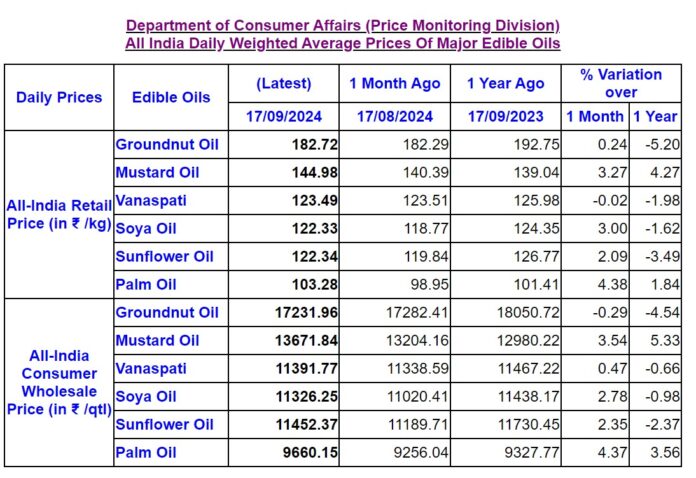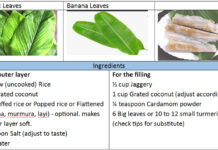NEW DELHI: A meeting was held between the secretary Department of Food and Public Distribution and representatives of various edible oil industry bodies, wherein they discussed the pricing strategy.
Solvent Extraction Association of India (SEAI), Indian Vegetable Oil Producers’ Association (IVPA) and Soyabean Oil Producers Association (SOPA) were part of the meeting.
The associations were advised to ensure that the MRP of each oil is maintained till the availability of edible oil stocks imported at low duty and take up the issue with their members immediately.
Earlier also, the MRP of edible oils such as sunflower oil, soyabean oil and mustard oil were reduced by the industry, as per the request from the government.
The reduction in oil prices had come in the wake of the reduction of international prices and reduced import duty on edible oils making them cheaper. The industry has been advised from time to time to align the domestic prices with the international prices to reduce the burden on the consumers.
The centre has last week increased the Basic Customs Duty on various edible oils to support domestic oilseed prices. Effective September 14, 2024, the Basic Customs Duty on Crude Soybean Oil, Crude Palm Oil, and Crude Sunflower Oil has been raised from 0 per cent to 20 per cent, making the effective duty on crude oils to 27.5 per cent.
Additionally, the Basic Customs Duty on Refined Palm Oil, Refined Sunflower Oil, and Refined Soybean Oil has been increased from 12.5 per cent to 32.5 per cent making the effective duty on Refined oils as 35.75 per cent.
These adjustments are part of the government’s ongoing efforts to bolster domestic oilseed farmers, especially with the new soybean and groundnut crops expected to arrive in markets from October 2024.
As per the government, the decision followed comprehensive deliberations and is influenced by several factors: increased global production of soybean, oil palm, and other oilseeds; higher global ending stocks of edible oils compared to last year; and falling global prices due to surplus production.
“This situation has led to a surge in imports of inexpensive oils, exerting downward pressure on domestic prices. By raising the landed cost of imported edible oils, these measures aim to enhance domestic oilseed prices, support increased production, and ensure that farmers receive fair compensation for their produce,” said the government.
Central government said it is also aware that there is close to 30 lakh tonne stock of edible oils imported at lower duty which is sufficient for 45 to 50 days domestic consumption.
India is the world’s second-largest consumer and leading vegetable oil importer and meets over 60 per cent of its needs through imports, primarily from Indonesia and Malaysia.
While oilseed production in India has witnessed growth over the years, it has not kept pace with consumption, leading to a continued reliance on imports. (ANI)
Also Read: India’s edible oil imports rose 22 pc in December 2022







